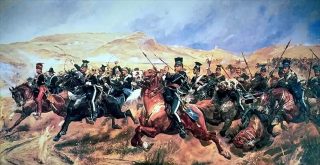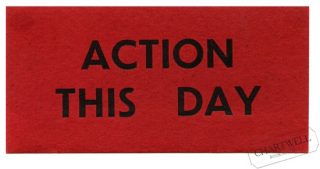It’s been ten years since Steve Jobs died and to commemorate his death, Jony Ive, Jobs’ longtime friend and collaborator at Apple, wrote a short piece in the WSJ. It’s a beautiful reflection on their friendship – it’s obvious the two men had a deep respect for one another – but it also describes how Jobs approached the creative process and reveals insights we can apply to our own creative endeavors.
Creativity begins with curiosity.
To imagine something new and bring it into the world requires curiosity. We’re all born with an insatiable curiosity. Children are naturally curious, but if we’re not careful, as we mature into adulthood, we can lose our curiosity. Ive noticed that for Jobs, curiosity was not some fickle emotion that came and went like the weather:
“His insatiable curiosity was not limited or distracted by his knowledge or expertise, nor was it casual or passive. It was ferocious, energetic and restless. His curiosity was practiced with intention and rigor.”
– Jony Ive on Steve Jobs
Curiosity is both a choice and a practice. It’s something Jobs cultivated daily, and we can too.
– Jony Ive on Steve Jobs
“Many of us have an innate predisposition to be curious. I believe that after a traditional education, or working in an environment with many people, curiosity is a decision requiring intent and discipline.”
Wanting to learn is more important than wanting to be right.
To instill a discipline of curiosity requires a commitment to learning and a dose of humility. It helps to acknowledge three words that many leaders are afraid to say: “I don’t know.” There is a temptation for leaders to appear “right” rather than to admit to others that they don’t know the answer. Jobs never fell for that trap.
“Our curiosity begs that we learn. And for Steve, wanting to learn was far more important than wanting to be right.”
– Jony Ive on Steve Jobs
Monitor and guard the quality of your thinking.
The human brain is an amazing piece of biological machinery. Like a Ferrari or a jet engine, it requires continual monitoring, observation and refinement. Jobs understood that the quality of his thinking had a direct correlation with the quality of his ideas, so he paid attention to how his mind operated and set high expectations for himself.
“Steve was preoccupied with the nature and quality of his own thinking. He expected so much of himself and worked hard to think with a rare vitality, elegance and discipline. His rigor and tenacity set a dizzyingly high bar. When he could not think satisfactorily, he would complain in the same way I would complain about my knees.”
– Jony Ive on Steve Jobs
Ideas, no matter how flawed, are precious and deserving of reverence and respect.
When an idea first emerges it’s fragile. If we’re not careful, it will die before it ever has a chance at life. The problem with new ideas is they are deeply flawed. Ideas don’t come to us fully formed, rather they are like raw material. Jobs understood this and that’s why he protected his ideas, giving them vital nutrients and energy to grow and evolve. Speaking of Jobs, Ive said:
“As thoughts grew into ideas, however fragile, he recognized that this was hallowed ground. He had such a deep understanding and reverence for the creative process. He understood creating should be afforded rare respect – not only when the ideas were good or the circumstances convenient.”
– Jony Ive on Steve Jobs
It’s surprisingly easy to shoot down our own ideas, and it’s even easier to criticize new ideas offered by others. The flaws of an new idea are often glaring and its natural to focus on them, but great innovators focus on what they like about an idea, not what they don’t like.
“Ideas are fragile. If they were resolved, they would not be ideas, they would be products. It takes determined effort not to be consumed by the problems of a new idea. Problems are easy to articulate and understand, and they take the oxygen. Steve focused on the actual ideas, however partial or unlikely.”
– Jony Ive on Steve Jobs
Tap Into a Higher Purpose
If you want to bring something new into the world that’s truly exceptional, it helps to have a higher purpose guiding your actions. Bringing new things into the world is hard. There will be obstacles to overcome and plenty of opportunities to say to yourself, “okay, I think it’s good enough.”
To create something truly remarkable – something that changes the world for the better – a deeper sense of purpose can inspire us to keep trying and pushing for greatness.
For Steve Jobs, that higher purpose was seeking simplicity, beauty and truth. Jobs and Ives weren’t simply making “technology products.” If they believed they were making technology products they would have created products that looked like their competitors. When describing what makes Apple special, Jobs said, “It’s in Apple’s DNA that technology alone is not enough — it’s technology married with liberal arts, married with the humanities, that yields us the results that make our heart sing.”
When describing what he misses most about Jobs, Ive said:
“Above all else, I miss his singular and beautiful clarity. Beyond his ideas and vision, I miss his insight that brought order to chaos. It has nothing to do with his legendary ability to communicate but everything to do with his obsession with simplicity, truth and purity.”
– Jony Ive on Steve Jobs
Jobs desired to bring something simple, beautiful and transformative into the world, and that’s what he did, first with the Macintosh and then, again with the iPhone.
Speaking of Jobs, Ive said:
“Ultimately it speaks to the underlying motivation that drove him. He was not distracted by money or power, but driven to tangibly express his love and appreciation of our species. He truly believed that by making something useful, empowering and beautiful, we express our love for humanity.”
– Jony Ive on Steve Jobs
Consider not just what you want to bring into the world, but why. It’s in the “why” that you’ll find a near bottomless wellspring of inspiration.
Sources
- Jony Ive on What I Miss Most About Steve Jobs – Wall Street Journal, October 4, 2021
- The Most Ignored Advice from Steve Jobs – by Greg Dickens on Medium
Related Articles by Sean Murray
- Steve Jobs Most Important Decision Making Tip
- Action this Day: How Winston Churchill Got Things Done
- Benjamin Franklin: 10 Lessons on Wisdom
- Viktor Frankl: 5 Lessons from Man’s Search for Meaning
- Ulysses S. Grant: 12 Leadership Lessons
- Lewis & Clark: 5 Leadership Lessons
- Google: 8 Most Important Qualities of Leadership
- Phil Knight: 7 Leadership Lessons from Nike
About the Author
Sean P. Murray is an author, speaker and consultant in the areas of leadership development and talent management. Learn more at RealTime Performance. He also hosts The Good Life Podcast on The Investor’s Podcast Network.
Follow Me on Twitter: @seanpmurray111



Sean: just took time out from an atypical day to read your 6 min quip with regards to S Jobs! Thank you for taking the time to delve into & post these articles
Sincerely Harley
PS as an avid horseman I find I do my best when I’m “playing” with the horses rather than training them…. If that makes sense